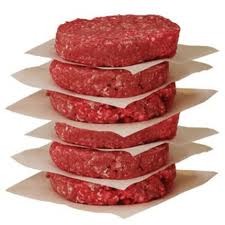 Article updated 12.15pm, Wed May 23
Article updated 12.15pm, Wed May 23
Trade and industry sources last night were treating with caution claims made in US media that Australian beef has tested positive in the US in recent days for E.coli bacterial contamination.
An item generated by Associated Press and first published in North Carolina’s Charlotte Observer website suggests two South Carolina companies are voluntarily recalling almost 7000 pounds (3.2 tonnes) of ground beef which is possibly contaminated with E.coli.
While the original newspaper website report makes no reference to origin, a subsequent report on the respected Meatingplace.com website clearly claims the product under review is Australian, under the headline, “Aussie beef sparks S.C. state recall.”
The Charlotte Observer newspaper claimed the South Carolina Meat Poultry Inspection Department announced the recall on Friday for products from Lancaster Frozen Foods in Lancaster and G&W Inc in Hickory Grove, SC.
It says products subject to recall were produced between March 2 and May 11 at Lancaster Frozen Foods, and between March 2 and April 12 at G&W.
The problem was discovered through the State department's lab testing, which confirmed a positive result for E.coli in ground beef from Lancaster Frozen Foods, the newspaper claimed. No illnesses have been reported so far from consumption of the ground beef.
Meatingplace.com claimed the meat was shipped to the facilities from an Australian supplier for repackaging and reshipping.
It says the meat was sent to wholesale and retail stores around the State, while one direct delivery from the Australian plant went to a South Carolina supermarket.
The beef was not contaminated at the Lancaster and Hickory Grove plants, State authorities claimed.
MeatingPlace.com made the point that dozens of Australian plants are USDA-certified to export meat to the US. It quoted the Observer as saying no information was available on which Australian plant was involved, and it was unclear whether a more extensive recall would be issued.
No comment was available from the Australian Quarantine and Inspection Service or the Australian Meat Industry Council when contacted by Beef Central over the claims last night, but the Department of Agriculture, Forestry and Fisheries issued the following dot-point statement to Beef Central at 11.15am this morning:
- The Department received notification from US authorities that ground beef in the US had tested positive for Escherichia coli O157:H7 and that Australian beef had been implicated in the detection.
- Australia is still confirming with the US that Australian product is the source of this contamination.
- A voluntary recall of the relevant product is occurring in the US.
- The implicated Australian product was tested prior to export in Australia and complied with the US equivalent E. coli testing program.
“If it proves to be accurate, and is confirmed to be sourced to contaminated Australian product, it is an issue between AQIS and the packer concerned,” a senior processing industry source said yesterday afternoon.
“Only AQIS can know, at this point, what FSIS has told them. Any other conclusions at this point are only made on assumptions and guesswork,” he said.
“But there are a whole lot of questions around the claim, yet to be confirmed by US Federal authorities: Is the source indeed Australian beef? The great majority of US grinders use combinations of domestic US and imported product. Most co-mingled ground beef products produced in the US can include raw material from anything up to half a dozen suppliers, both domestic US and imported. Was the test done at the co-mingled stage, or beforehand?”
If the accusation that the source of the contamination was Australian proved to be false, it was very unfortunate that it has already made the press in the US, Beef Central’s industry source said.
Strict microbial testing protocols apply to Australian beef, tested before shipment to the US. Australian suppliers consistently perform at the upper end of the range for phytosanitary performance in comparisons with US packers.
- Beef Central will update this story as new information comes to hand.
